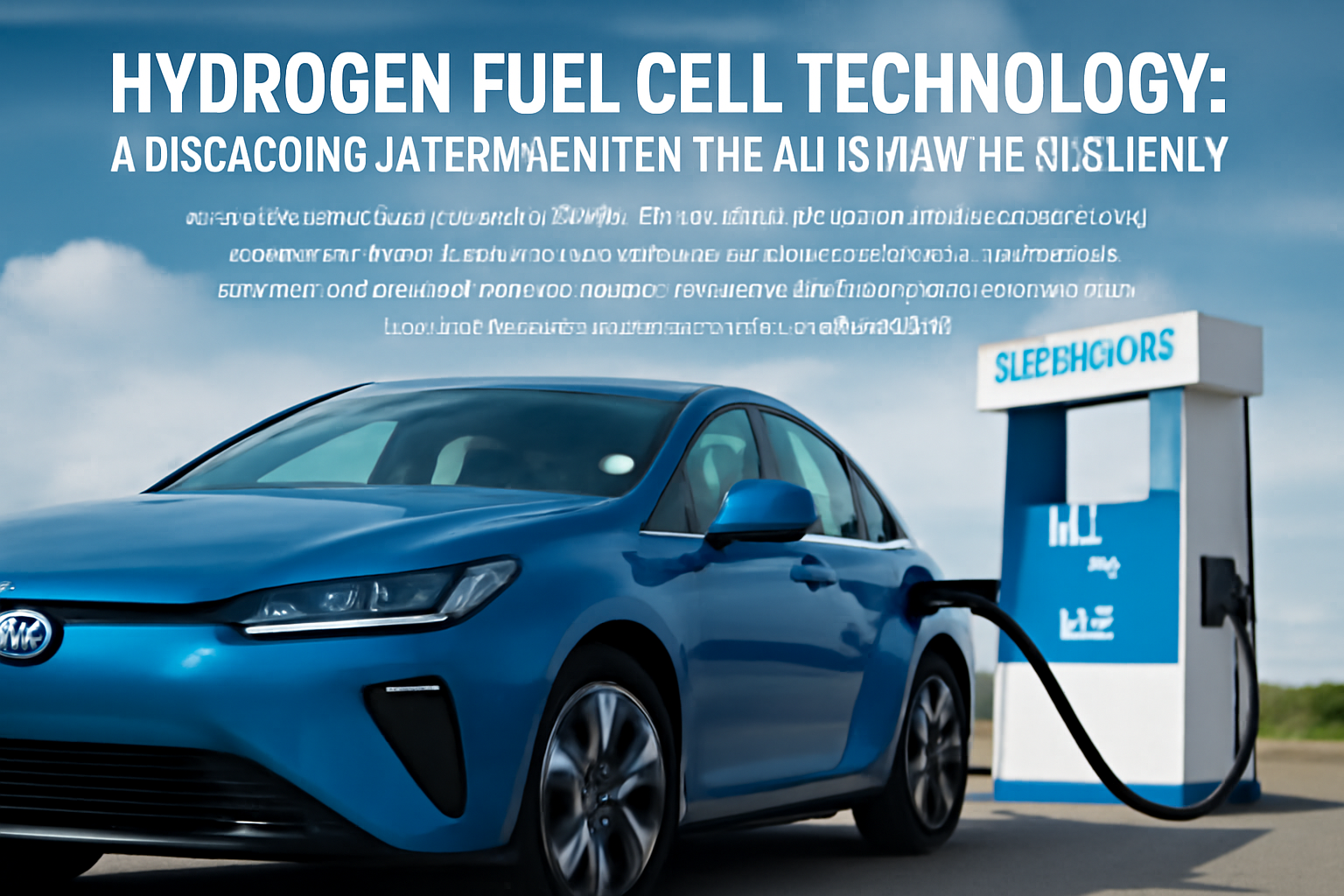Location
Mount Vernon, WA 98274
Location
Mount Vernon, WA 98274

As the automotive industry evolves, hydrogen fuel cell technology is emerging as a promising alternative to conventional fuels and even electric vehicles. This article explores the advancements in hydrogen technology, its potential impact on transportation, and the challenges that lie ahead.
The quest for sustainable transportation has led to significant innovations in automotive technology, with hydrogen fuel cells emerging as a compelling contender in the race to reduce carbon emissions. Unlike traditional combustion engines or even battery electric vehicles (BEVs), hydrogen fuel cells generate electricity by combining hydrogen and oxygen, emitting only water vapor as a byproduct. This clean energy source could redefine our approach to mobility, especially as cities become more congested and environmental concerns intensify.
One of the most significant advancements in hydrogen technology is its increasing efficiency and affordability. Recent developments have reduced the cost of hydrogen production, particularly through electrolysis, where water is split into hydrogen and oxygen using renewable energy sources. According to the International Energy Agency (IEA), the cost of producing green hydrogen has dropped by 50% since 2020, making it a more viable option for widespread adoption.
Major automotive manufacturers are already investing heavily in hydrogen fuel cell technology. For instance, Toyota’s Mirai and Hyundai’s NEXO are leading the charge in the consumer market, showcasing the practicality of hydrogen-powered vehicles. These models not only provide long driving ranges-often exceeding 300 miles on a single tank-but also offer refueling times comparable to gasoline vehicles, typically under five minutes. This convenience could address one of the significant barriers to electric vehicle adoption: long charging times.
In addition to passenger vehicles, hydrogen technology is making strides in commercial transportation. Companies like Nikola and Plug Power are developing hydrogen fuel cell trucks that promise to revolutionize logistics by providing longer ranges and quicker refueling compared to battery electric trucks. With the global logistics sector under pressure to reduce emissions, these hydrogen options could offer a path forward.
However, challenges remain before hydrogen can become a mainstream solution. The infrastructure for hydrogen refueling stations is limited, particularly in comparison to the rapidly expanding network of electric vehicle chargers. Additionally, concerns about hydrogen production methods and the carbon footprint of certain production processes must be addressed. The industry must also tackle safety concerns related to hydrogen storage and transportation.
Despite these hurdles, many experts believe that hydrogen has the potential to play a crucial role in a diversified energy landscape. The European Union and countries like Japan and South Korea are investing in hydrogen initiatives, recognizing its potential to contribute to energy security and sustainability goals.
As cities continue to evolve and the demand for clean transportation solutions grows, hydrogen fuel cell technology could be the next significant leap in automotive innovation. By fostering collaboration between governments, manufacturers, and researchers, we can pave the way for a future where hydrogen fuels our mobility, ensuring a cleaner, more sustainable world.